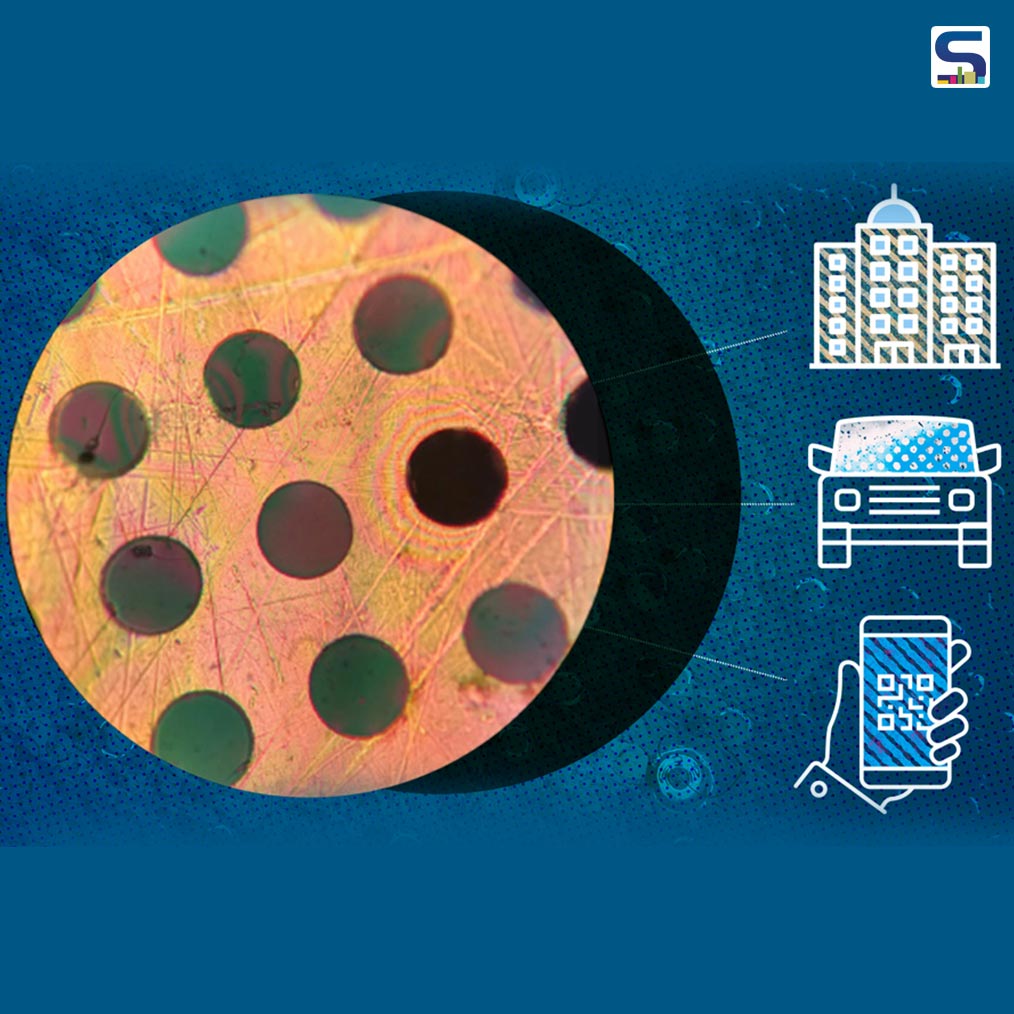
MIT chemical engineers have developed a new material that is stronger than steel and as light as plastic. Named 2DPA-1 polymer, this material has a sixth of steel's density yet it requires double force to be broken into pieces. It also has six times the deformation resistance of bulletproof glass. Owing to its toughness and lightweight, it could be used as a replacement for steel parts in construction and manufacturing processes. Further, it can also be used as a thin but ultra-hard protective coating for car parts or phones. The other amazing attribute of the material is that it can be sealed tight enough that even liquids or gases can't pass through, hence it would resist corrosion on the parts where it would be applied over. Read SURFACES REPORTER (SR)'s complete report to know more about this new material:
Also Read: Mycelium Can Be Part of the Solution to Carbon-Negative Buildings| SR Material Update
The researchers at MIT university created this new polymer material using a novel polymerization process. According to them, it can be easily produced in large quantities.
Impossible 2D Material
Unlike all other polymers which form one-dimensional, spaghetti-like chains, the newly invented material is a two-dimensional sheet-like structure called polyamide.
As per the scientists, it is a feat for them as until now it was impossible to induce polymers to create 2D sheets.
The material is created by combining those molecular chain "disks" on top of each other and are fixed together with strong hydrogen bonds between the layers that even do not let gases seep through. this makes the material extremely sturdy and stable.
Tougher than steel
Researchers learned that the material is twice as strong as steel and several times tougher than bulletproof glass. According to them, the amount of force is required to deform it is twice that of steel, even though the material is only about one-sixth the density of steel.
The engineers also found that the material is impermeable to gases- meaning it does not allow gas to pass through it. Generally, polymers are made with gaps that allow air and gases to pass through while this new material is created from monomers that lock together tightly.
Michael Strano, the Professor of Chemical Engineering at MIT and the senior author of the new study, says, “We don’t usually think of plastics as being something that you could use to support a building, but with this material, you can enable new things,” he said in a statement from MIT. “It has very unusual properties and we’re very excited about that."
Also Read: Use of Recycled Materials in Architecture and Design
Where it can be used?
The newly developed material can be used as a long-lasting coating for car parts or cell phones. Further, it can be used as a building material for making bridges or other structures, according to Michael Strano.
“We don’t usually think of plastics as being something that you could use to support a building, but with this material, you can enable new things,” he says. "If you look at it chemically, it’s close to kevlar. We make bulletproof vests out of it — if you’re a mountain climber it’s very strong cables," he added.
The Center for Enhanced Nanofluidic Transport (CENT) an Energy Frontier Research Center sponsored by the U.S. Department of Energy Office of Science, and the Army Research Laboratory research funded this research.
Source: MIT
Keep reading SURFACES REPORTER for more such articles and stories.
Join us in SOCIAL MEDIA to stay updated
SR FACEBOOK | SR LINKEDIN | SR INSTAGRAM | SR YOUTUBE
Further, Subscribe to our magazine | Sign Up for the FREE Surfaces Reporter Magazine Newsletter
Also, check out Surfaces Reporter’s encouraging, exciting and educational WEBINARS here.
You may also like to read about:
Innovative 3D Printer That Upcycles Sawdust and Other Wood Waste To Create Wonderful Products
Research: Graphene Helps in Lowering Body Temperature! Can it Aid in Building Design Too?
New Age Ceiling Products You Should Know About
Rhinox, the healthier solution for the plumbing needs | SURFACES REPORTER Product Post
and more...